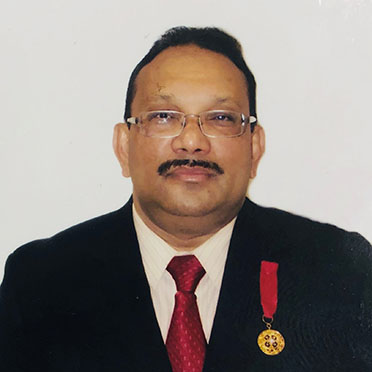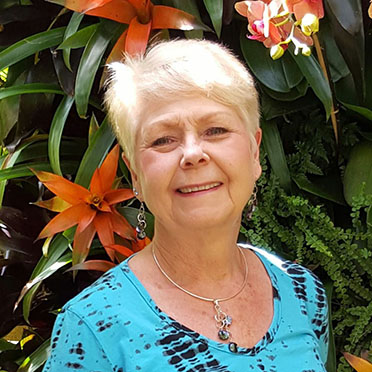Breathe easier – Respiratory Care Week
October 27, 2020
Did you know respiratory therapy originated in Chicago? In 1943, the first group of inhalation therapists (now called respiratory therapists) started working with post-operative patients during training at Michael Reese Hospital. Nearly 40 years later in 1982, President Ronald Reagan issued a proclamation dedicating National Respiratory Care Week and, today, we recognize National Respiratory Care Week the last full week in October.
According to the American Association for Respiratory Care, “Respiratory care is the health care discipline that specializes in the promotion of optimum cardiopulmonary function and health and wellness.” Respiratory therapists diagnose, manage and work to control illnesses affecting the lungs.
These heroes are leading the front-line efforts during the COVID-19 pandemic.
We’d like you to meet six respiratory therapists working at NCH.
Sunny George, CRT
15.5 years at NCH
St. Augustine College, Chicago
NCH Influencer: My co-worker, Jaimon K. Skaria.
What motivates or inspires you to continue to be a front line healthcare worker?
I am enjoying working in the CCU with critical patients especially during this pandemic time and I am happy to see our patients are getting better.

Laraeb Haque, CRT
Two years at NCH
College of DuPage
What motivates or inspires you to continue to be a front line healthcare worker?
I enjoy being part of the process of patients (adults and NICU) coming back from a vulnerable situation in life and going back to lead a normal and better life.

Susan Krewer, RRT
27 years at NCH
College of DuPage
What motivates or inspires you to continue to be a front line healthcare worker?
I enjoy helping the patients feel better.

Kiran Patel, CRRT & RRT
19 years at NCH
NCH Influencer? One person that has had an impact on me at NCH was my previous manager, Bobbie Lawrence. She hired me at NCH as a student and motivated me to achieve my credentials as well as work hard to meet my goals. I will always be grateful for Bobbie and how she encouraged me to always do my best.
What motivates or inspires you to continue to be a front line healthcare worker? When I decided to become a respiratory therapist, the main reason was because of my desire to help people. During this pandemic there have been many obstacles and hardships to overcome; however, I always strive to give my best effort day in and day out. Along with the desire to help people, the team at NCH also helps me get through a difficult shift and is always there for me when needed. As my patients continue to recover, it gives me happiness and a good feeling knowing that I did my job to help them. Overall, I enjoy being a healthcare professional during this unprecedented time.

Jaimon K. Skaria M.S., RRT, CRTT
30 years at NCH
Central YMCA Community College, Chicago
NCH Influencer? The late Mrs. Bobbie Lawrence, Director of Respiratory Care at NCH.
What motivates or inspires you to continue to be a front line healthcare worker?
I always sincerely enjoy working with critical patients in our CCU and feel so good when I see they are improving with the help of our teams’ (physicians, nurses and respiratory therapists) and the great care they provide at NCH.

Suzanne Solin B.A., RRT, RCP
15 years at NCH
University of Illinois
After graduating from the University of Illinois with a BA in education, I taught high school for three years before deciding to go into healthcare. I attended an accelerated respiratory care program through Central YMCA Community College. Afterwards I went on to teach respiratory care for the same school for several years.
NCH Influencer: There are too many quality staff members to name all of those who have impressed me by their commitment to exceptional patient care. Every department has employees who are outstanding in their empathy and excellent work ethic. Those are the people I truly admire and try to emulate.
What motivates or inspires you to continue to be a front line healthcare worker? At the start of the COVID-19 pandemic, my decision to continue working was a very difficult one due to my age and history of asthma. Early on I remember the media pleading with all retired healthcare workers to consider coming back to work so hospitals would be prepared to handle the anticipated number of additional patients. It was this ‘call to duty’ that helped me to make the decision to continue working in spite of the potential threat to my health. Respiratory therapists are critical in caring for COVID-19 patients who may suffer from severe and complicated breathing problems. To leave the hospital in need of qualified therapists, thus burdening those who were still working, seemed irresponsible. How could I expect others to put their health and lives at risk when I wasn’t willing to do the same?
